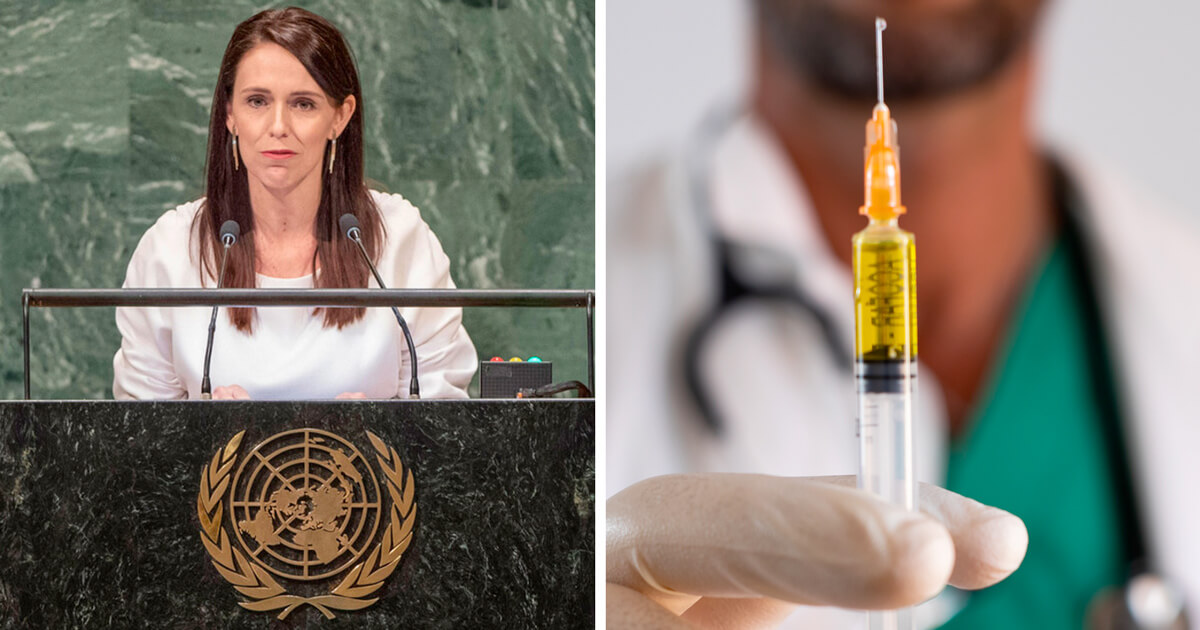New Zealand has voted to introduce an extreme assisted suicide law in a binding public referendum.
Preliminary results, announced by the country’s electoral commission today, show 65.2% of voters supported the End of Life Choice Act coming into force as a new law. Support for introducing euthanasia has dropped considerably over the last 18 months, with polling in April 2019 showing that 74% of respondents supported introducing euthanasia.
An estimated 480,000 special votes still need to be counted, but the margin between the support and opposition is so wide that the referendum is likely to succeed.
The official results of the euthanasia vote will be published November 6, with the new law coming into effect one year later.
The introduction of the law follows New Zealand introducing the world’s most extreme abortion law earlier this year. Both changes were backed by Jacinda Ardern.
Confusion around details of the law change
Polling undertaken during the advance voting period ahead of the final day of voting showed that only 20% of respondents knew that the Act would not make it legal to turn off life support.
“It seems that most New Zealanders voted for an end-of-life choice that is in fact already legal,” said Renée Joubert, Executive Officer of Euthanasia-Free NZ.
Drastic law change
The drastic change in law, which will allow assisted suicide or euthanasia if certain eligibility criteria are met, will see New Zealand join a very small group of countries – including the Netherlands and Canada – which already allow doctors to end the lives of their patients.
Ahead of the referendum, legal risk lawyers and healthcare professionals have expressed deep concern with the legislation and its lack of safeguards.
These include: no assessment to check individuals aren’t being coerced into assisted dying or euthanasia; no mental health checks; concerns about pressure to choose death due to lack of options; and a potential lack of equal access to good palliative care.
In addition, both the World Medical Association and New Zealand Medical Association are opposed to euthanasia and assisted suicide. Over 1,800 New Zealand doctors have come together to form the ‘Doctors Say No’ movement opposing the law change in New Zealand.
In their open letter to New Zealanders, they urged Kiwis to “leave doctors to focus on saving lives and providing real care to the dying.”
Hospice New Zealand, which provides end of life palliative care, also “opposes and disagrees with the intent of the Act”.
The group is particularly concerned that individuals with a terminal illness may feel pressured to choose death.
‘Sad and dangerous day for the vulnerable’
Bob McCoskrie, National Director of Family First NZ, said: “Today is a sad and dangerous day for the vulnerable.”
“Nothing in this Act guarantees the protection required for vulnerable people, including the disabled, elderly, depressed or anxious, and those who feel themselves to be a burden or who are under financial pressure…
“Some people will be euthanised on account of a disease they thought they had but did not. Prognosis is an uncertain procedure. Others will request assisted suicide because of coercion either internally or from relatives, or concerns around costs of treatment, and others will be struggling because of a terminal disease prognosis and actually just need appropriate support.”
“They may come to feel euthanasia would be ‘the right thing to do’; they’ve ‘had a good innings’ and do not want to be a ‘burden’ to their nearest and dearest. This law now means that vulnerable people facing a terminal illness will be asking themselves – why should I not be accessing euthanasia?”
He adds: “It is one thing to say yes to a nice sounding phrase around having ‘choice’, but assisted suicide is not a simple yes no answer.”
‘Lack of support’
Ahead of the referendum, a number of people with chronic illnesses echoed Bob’s concerns and voiced their opposition to the extreme law change.
Claire Freeman, who was involved in a car accident causing her to become tetraplegic, has spoken out forcefully against the assisted suicide.
In a short documentary for #DefendNZ, Claire revealed that after attempting suicide more than once health professionals “encouraged [her] to explore assisted suicide”.
During her recuperation in hospital, Claire realised “being offered assisted suicide instead of suicide support was disturbing.”
She added: “I had been told ‘if I was in your position, with your disability, I wouldn’t want to live’ by the very health professionals who are there to help suicide survivors… I realised my biggest problem had been my mindset and a lack of proper support.”
Woman with terminal cancer wants her vote against assisted suicide to count
Vicki Walsh was told in June 2011 her brain cancer diagnosis was terminal and she only had 12 to 14 months to live.
However, now aged 53, Walsh has had nine more years of life since.
Revealing to Newshub why she’s against the legislative change, Vicki said those additional years of life may not have happened if the choice of assisted dying had been available because she would’ve taken it.
“Obviously euthanasia wasn’t an option, but I had a go at killing myself. So had euthanasia been an option then, it is probably one I would have taken, not realising I was actually depressed,” she said.
Up until then, she had always believed people should have the choice of assisted dying, saying it was, ‘My body, my choice’. But after her suicide attempt, her views changed.
Now, she is enjoying life with her family and hopes to live long enough to have her say against assisted dying.
“I don’t want to rob my children that one smile or one kiss… I’m hoping, really hoping, that I will get my vote in and make my vote count,” she added.
‘This law is not safe’
Dr Huhana Hickey, a human rights lawyer with Multiple sclerosis, says: “I don’t believe this law is safe for the disability community, for the Māori community or for anyone who has a risk factor in their lives.”






